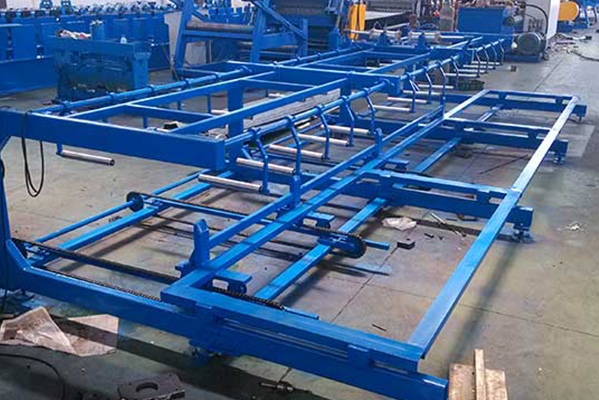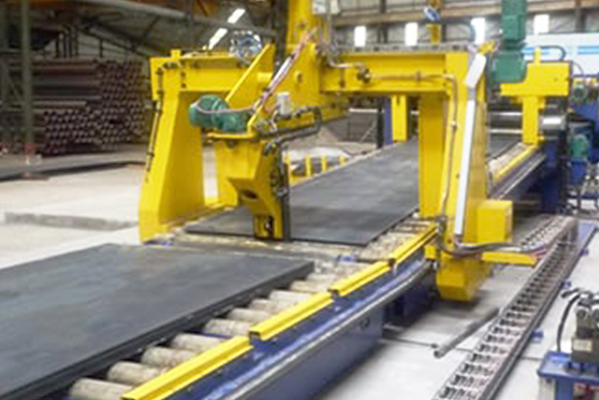Navigation Menu
Contact Us
- Email:
- info@wxavatar.com
- Address:
- Yurong Village, Yuqi Street, Huishan District, Wuxi, China.
Release Date:Apr 08, 2025 Visit:73 Source:Roll Forming Machine Factory
The term "stacker" can refer to different roles depending on the industry or context. Whether in logistics, fitness, technology, or finance, stackers play crucial roles in organizing, managing, and optimizing processes. Below, we explore the various meanings and responsibilities of a stacker across different fields.
1. Stacker in Warehousing & Logistics
In warehouse and logistics operations, a stacker (or forklift stacker) is a machine or operator responsible for lifting, moving, and stacking goods.
Key Responsibilities:
Loading and Unloading: Moving pallets, boxes, and containers efficiently.
Stacking Goods: Organizing inventory in an orderly manner to maximize storage space.
Operating Equipment: Using forklifts, pallet stackers, or automated stacking cranes (ASCs) in large warehouses.
Safety Compliance: Ensuring proper stacking techniques to prevent accidents or product damage.
Types of Stackers in Warehousing:
Manual Stackers: Hand-operated for lighter loads.
Electric Stackers: Battery-powered for medium to heavy loads.
High-Stackers: Used in tall storage facilities (e.g., automated warehouses).

2. Stacker in Fitness & Bodybuilding
In the fitness world, a "stacker" refers to someone who uses supplement stacks—combinations of different supplements (like protein, creatine, or pre-workouts) to enhance performance.
Key Responsibilities (for a Supplement Stacker):
Researching Supplements: Understanding which combinations work best for muscle gain, fat loss, or endurance.
Dosage Management: Avoiding overuse or harmful interactions.
Tracking Results: Monitoring progress and adjusting stacks as needed.
Common Supplement Stacks:
Bulking Stack: Protein + Creatine + BCAAs
Pre-Workout Stack: Caffeine + Beta-Alanine + Citrulline Malate
Fat Loss Stack: L-Carnitine + Green Tea Extract + CLA
3. Stacker in Technology (Full-Stack Developers & Data Stacking)
In tech, "stacker" can refer to:
A. Full-Stack Developers
These professionals work on both front-end (UI/UX) and back-end (server/database) development.
Responsibilities:
Building and maintaining web applications.
Integrating APIs and databases.
Ensuring smooth user experience across platforms.
B. Data Stackers
In data science, stacking refers to combining multiple machine learning models for better predictions.
Responsibilities:
Training and optimizing multiple algorithms.
Blending models (e.g., Random Forest + Neural Networks).
Improving predictive accuracy in AI systems.
4. Stacker in Cryptocurrency (Staking)
In blockchain, a "stacker" (or staker) participates in proof-of-stake (PoS) networks by locking up crypto to support the network and earn rewards.
Responsibilities:
Validating Transactions: Helping secure blockchain networks.
Earning Passive Income: Receiving staking rewards.
Choosing Secure Nodes: Delegating to reliable validators.

Popular Staking Coins:
Ethereum (ETH)
Cardano (ADA)
Solana (SOL)
Conclusion
The role of a stacker varies widely:
In warehousing, they handle inventory and logistics.
In fitness, they optimize supplement use.
In tech, they develop full-stack applications or improve AI models.
In crypto, they stake assets to earn rewards.
Each type of stacker plays a vital role in their respective industry, contributing to efficiency, performance, and innovation.